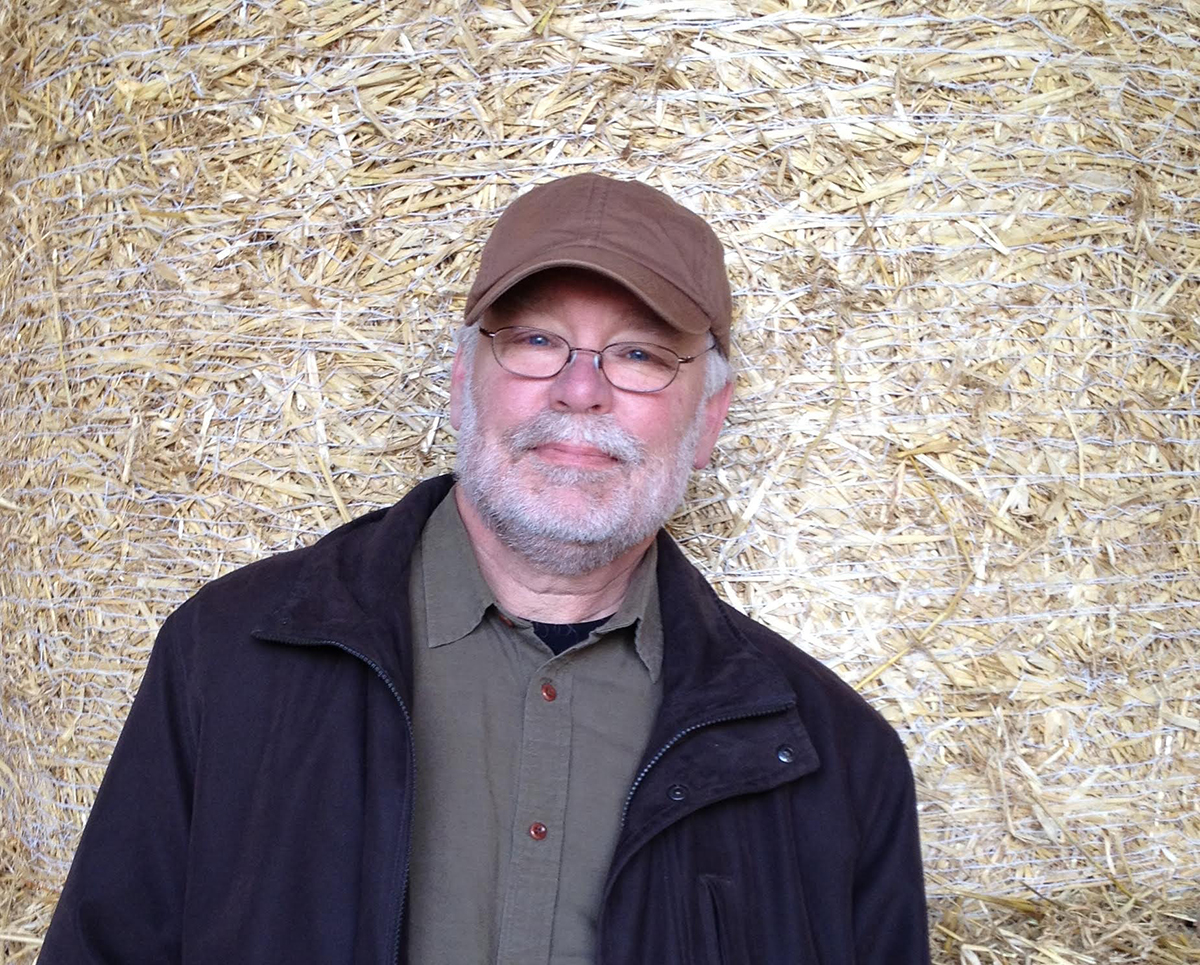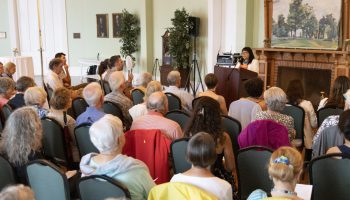David Shumate wants to introduce people to the magical and mundane pleasures that prose poetry can offer.
“It recognizes and often combines what is often thought to be the ‘ordinary,’ but it elevates it — through the poem itself — into the mythical or the enchanted,” Shumate said.
Shumate, Week Nine’s poet-in-residence at the Chautauqua Writers’ Center, will discuss prose poetry with his Brown Bag lecture, “Exploring the Grey Area of Literature,” at 12:15 p.m. Tuesday on the front porch of the Literary Arts Center at Alumni Hall.
He’s an experienced practitioner when it comes to the hybrid genre: Shumate has written three collections of prose poetry: Kimonos in the Closet, The Floating Bridge and High Water Mark. Shumate’s work has been featured in The Best American Poetry and “The Writer’s Almanac,” and he was the recipient of a National Endowment for the Arts Fellowship in Poetry in 2009.

Shumate said his Brown Bag is an extension of his workshop this week at the Writers’ Center, in which he’s teaching his students the ins and outs of writing prose poetry. He said he’ll do a brief exploration of the history of the prose poem with his lecture.
“I’ll be taking a look at where those initial forays into blending prose and poetry surfaced first — that could be with the French in the 19th century,” Shumate said. “And then we’ll examine some of the noteworthy developments of the genre as it progressed through the 20th century into the 21st century. There’s some really quite wonderful work that’s been done in the area.”
Shumate said he’ll like to give his audience a few examples of excellent prose poets, such as Charles Simic, Jim Harrison, Louis Jenkins and Russell Edson.
What’s drawn him to prose poetry during his career is the ambiguity the genre offers, Shumate said. When people think of poetry, Shumate said, they often think it should look and sound a particular way.
Prose poetry shakes up those conceptions.
“Not only is the prose poem noted for combining prose and poetry — it also tends to straddle the border between comedy and tragedy, really,” Shumate said. “It opens its doors, perhaps more than other genres, to a humorous treatment. It’s on the borderline between prose and poetry, tragedy and comedy, and the mundane and the mythical.”
And for writers, Shumate said, prose poetry offers a good challenge.
Writers of prose often want to make their words more lyrical, Shumate said, and poets often want to find a narrative thread for their poems. Prose poetry allows writers to pull from both of those traditions.
“I think the act of being a writer is the act of always investigating our ordinary world and different and new ways — looking for subtleties, looking for nuances, exploring new areas,” Shumate said. “I think we maybe put ourselves in danger as writers if we become too married to one particular sense of what a poem should be or what a short story should be.”
Because prose poetry straddles the line between different genres, people might be less aware of it, Shumate said, even if they’re curious about it. He said he hopes his lecture will give his audience some new ideas.
“I hope they’ll look at literature in a slightly new way,” Shumate said. “I hope it will expand their sense of the formal possibilities of both poetry and prose.”




